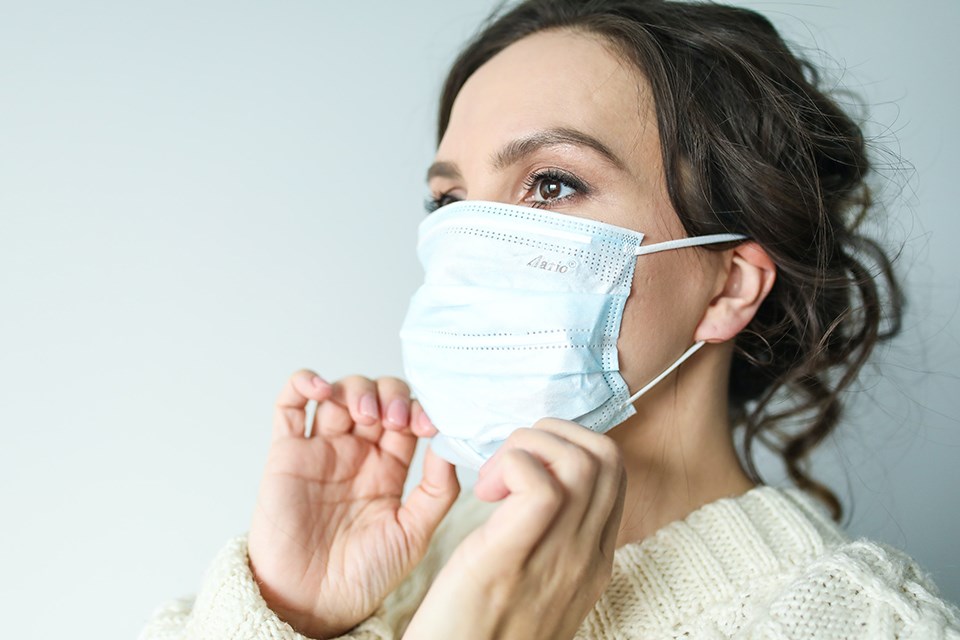Masking rules are being relaxed in Ontario, but experts are saying it is still a smart choice to wear a face mask even if others do not.
It was outlined in an article in the latest issue of the Canadian Medical Association Journal (CMAJ) which spoke to the concept of "one-way masking." One-way refers to the fact that while you wear a mask, others do not.
The article by CMAJ's Lauren Vogel reviews new information from the CDC (Centers for Disease Control and Prevention) in the United States that examines the effectiveness of face coverings to prevent acquisition of SARS-CoV-2 (COVID-19) infection.
"Face masks work best to prevent the spread of SARS-CoV-2 when everyone wears one. But experts say it is still worth wearing a mask to protect yourself, even if no one else does," according to Vogel's article.
"While public health messaging has tended to emphasize the importance of wearing a mask to protect others, numerous studies have demonstrated that the right mask protects the wearer, too," the article continued.
It is timely because masking requirements have been lifted in most situations in Ontario and by June 11, most venues in Ontario will be mask-free.
In the summary on the effectiveness of mask-wearing, the CDC report had three key findings:
- Face masks or respirators (N95/KN95s) effectively filter virus-sized particles in laboratory settings. The real-world effectiveness of face coverings to prevent the acquisition of SARS-CoV-2 infection has not been widely studied.
- Consistent use of a face mask or respirator in indoor public settings was associated with lower odds of a positive SARS-CoV-2 test result. Use of respirators with higher filtration capacity was associated with the most protection, compared with no mask use.
- In addition to being up to date with recommended COVID-19 vaccinations, consistently wearing a comfortable, well-fitting face mask or respirator in indoor public settings protects against the acquisition of SARS-CoV-2 infection; a respirator offers the best protection.
"Recent data from the US showed that people who always wore a face mask in indoor public settings were less likely to test positive for SARS-CoV-2 than those who never wore a mask," said the CMAJ article.
"Better quality masks offered greater protection. Wearing an N95 or KN95 respirator lowered the odds of infection by 83%, while wearing a surgical mask or cloth mask lowered the odds by 66% and 56%, respectively," the article continued.
In short, using a face mask is better than no mask at all as long as the virus is still out there.
The CDC also said that in most cases, and for people who believe in science, there is no harm to wearing a mask.
"Research supports that under most circumstances, mask-wearing has no significant adverse health effects for wearers," said the CDC study. This included studies of healthy hospital workers, older adults, and adults with chronic obstructive pulmonary disease (COPD) who all reported no to minimal changes in oxygen or carbon dioxide levels while wearing a cloth or surgical mask either during rest or moderate physical activity.
Science journals are careful to warn that any mask is no guarantee of infection safety. Studies have indicated that a person wearing a mask can still be infected if he or she spends enough time (15 minutes to 75 minutes) in close company with an infected person.



98.jpg;w=120;h=80;mode=crop)